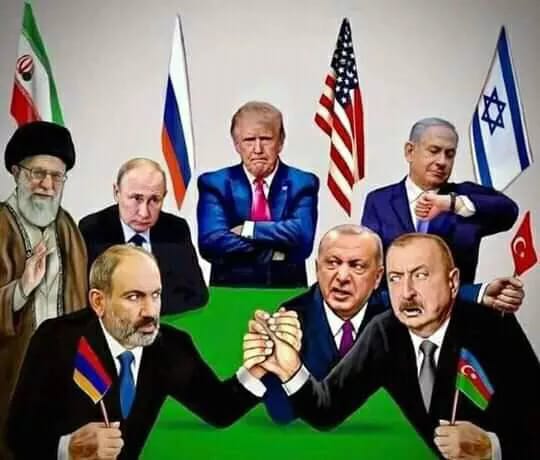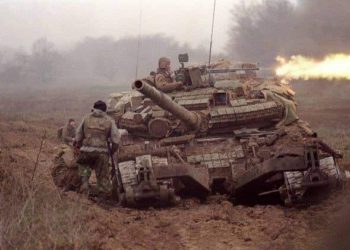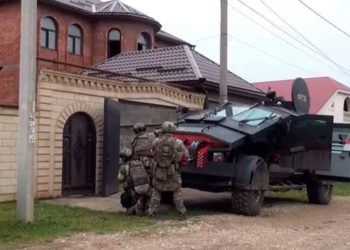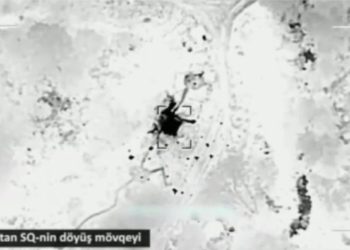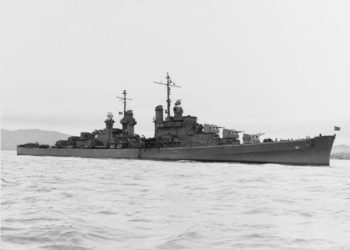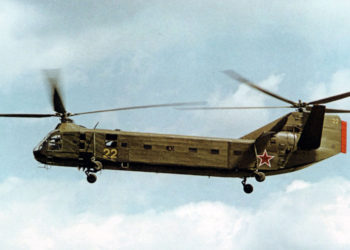Nagorno-Karabakh war of 2020: Winners and losers. Time to evaluate who won and who lost what at the conclusion of this conflict. The war found its roots all the way back in 1923. The situation festered throughout the 1980’s before turning into a political then armed insurgency from 1988 onwards. A full blown war raged between Armenia and Azerbaijan from 1992 until 1994 when the conflict and frontline were frozen.
Winners
President Aliyev and Azerbaijan
What 5 UN resolutions and countless rounds of negotiations with Armenia over the course of 26 years (not counting the occasional armed clashes) failed to resolve, the sharp but bloody 43 days Nagorno-Karabakh war of 2020 did. Aliyev will now be seen by his people as some kind of folk hero for the short to medium term. Shusha, a culturally important city for both Armenians and Azeris, is back in Azeri hands, alongside the 7 districts captured by Armenia in 1994 and occupied ever since. It means Azeri refugees (there are around 600,000 of them according to the UN) can finally go home after almost three decades away.
President Erdogan
Erdogan craves a place in the spotlight. He loves to picture himself as the shining beacon of Islam. He strives for increased Turkish influence in Ankara’s near abroad and beyond. This Azeri victory is already celebrated throughout the Muslim world and Azerbaijan owes said victory to Turkish involvement in this war. Aliyev now owes Erdogan a debt. This means increased Turkish influence and control in Baku. This, in turn, means increased Turkish influence in the Caucasus. Mission accomplished.
President Putin
Russia has brokered the peace between Azerbaijan and Armenia. Putin the peacemaker and peacekeeper. He would probably smile reading this. Not only that, but a beaten Armenia, fearful of further Azeri advances in Nagorno-Karabakh, has agreed to the deployment of Russian troops along the Lachin corridor and in Nagorno-Karabakh itself. Armenian safety is now in Russian hands! Russia still wields influence over the region.
Israel
Israel and Azerbaijan have enjoyed close cooperation since 1992. Israel buys 40% of its oil from Baku. Their relationship turned into a strategic partnership in 2012 when Israel was granted access to Azeri airbases. Those bases could potentially be used by Israel for strikes into Iran territory as well as for surveillance drone (spy) flights along the Iranian border. Both those topics have been actively discussed by both parties. Israeli Harop suicide drones played a role in the Azeri victory in the Nagorno-Karabakh war of 2020.

Losers
Russia and Iran
Nobody wished for more Turkish influence in the Caucasus. Yet, it has happened. Russia has had to deal with islamist insurgencies in the Caucasus for almost 20 years. Chechnya was officially pacified in 2009 but anti-insurgency operations carry on in the Russian Republic of Daguestan. Having Turkish imported Syrian jihadis next door in Azerbaijan and Nagorno-Karabakh must be a topic for concern in Moscow. Even without those Syrian mercenaries, Erdogan’s hybrid Islamic/Islamist agenda and increased Turkish influence in Baku will worry Russia.
Moscow has been careful to maintain a balance of power between Azerbaijan and Armenia for over 25 years. It proportionally sold weapons to both countries, ensuring that one would not become more powerful than the other. Thus avoiding an all-out war and maintaining the status-quo (and therefore stability) in its Near Abroad. That status-quo was broken by Turkish interference in Azerbaijan and Ankara’s heavy military involvement in the conflict (As well as Turkish and Israeli supplies of weapons that upset the local balance of power).
The South Caucasus is seen by Russia as its Near Abroad: Its own sphere of influence. While the recently signed peace deal between Azerbaijan and Armenia was brokered and is guaranteed by Russia, Moscow still must contend with an increased Turkish presence in the area. A compromise that must have stung some proud men in Moscow.
Iran, too, must be pretty unhappy about the situation. Its Turcik Azeri minority has proven troublesome in the past few weeks/months. Tehran must also be wary of increased Turkish influence within that population, too. The Turkish presence in Azerbaijan (as well as deployed Turkish-paid Syrian auxiliaries) coupled with the increased Azeri-Israeli strategic cooperation are indeed cause for concern in Tehran: Iranian General Abolfazl Shekarchi recently stated that “The presence of (Syrian) Takfiri terrorists in Azerbaijan is intolerable”. It also stated that “Iran won’t allow Israel to use spy bases near Iranian borders and that the country that opens that door (Azerbaijan) will face consequences.”
Turkey
While Erdogan has won brownie points in Baku and amongst his fanbase across the world, Turkey has once again been framed as a meddling and destabilising regional power by many Western states. There were renewed calls for sanctions against Ankara and several countries curtailed their deliveries of military hardware to Turkey.
Azerbaijan
Azerbaijan has a debt toward Ankara for this military victory. How much control does Turkey now wield in Baku? In the last few weeks of the conflict, Turkish foreign and defence ministries’ statements already looked like Ankara was talking for, not on behalf of Azerbaijan… How much Azeri sovereignty will Aliyev trade in the future for this Turkish sponsored military victory and for future Turkish favours? Baku has always been against the presence of Russian peacekeepers in Nagorno-Karabakh. Moscow’s pressure and the accidental Azeri shooting of a Russian Mi-24 (inside Armenian airspace) on the last day of the war pushed Aliyev to accept this compromise.
Pashinyan and the Armenian people
Armenia has a large diaspora abroad, mainly in France, Russia and the US. As such, said diaspora can act as lobby groups and ideed did so during this conflict. Beyond this, Armenia has little in the way of real friends. Landlocked between Turkey, Georgia, Azerbaijan and Iran, Yerevan can only count on the Iranian and Georgian land borders for trade. Armenia has long relied on Russia for trade and is a member of the Russia-led Eurasian Economic Union as well as the Customs Union. Yerevan has also long depended on Moscow for its own defence and arms supplies. As such, Armenia is a CSTO member state and Russian troops and border guards patrol the Armenian borders.

However, since his election in 2018, Pashinyan has led what Moscow sees as an anti-Russian policy in Armenia. Former pro-Russian politicians (including former Armenian president Kocharyan and ex-CSTO secretary general Khatchaturov) and pro-Russian businessmen were arrested as Pashinyan started courting the West. While it is Armenia’s democratic and sovereign right to choose whom it engages and deals with, a country as vulnerable and with as few friends as Armenia should play the geopolitical game with patience, subtlety and tact and conduct its internal and foreign policies accordingly.
Pashinyan seems to lack those qualities. Upsetting his only military ally and subsequently adopting the Sevres Treaty as a cornerstone of his foreign policy (an almost direct casus-belli for Ankara) was definitely clumsy of the Armenian prime minister. His failure to anticipate a Turkish/Azeri reaction in Nagorno-Karabakh was unforgivable. His failure to call Russia for help despite the conflict’s tide turning against the Armenian army from week 2 onward can only be seen as pride and dogma led. Pashinyan relented and finally invoked the Russia – Armenia treaty of friendship on the 30th of October 2020. By then, the war was basically already lost.
The irony is that Yerevan is now more dependent on Russia for its safety than it was 6 weeks ago! The Armenian people, already traumatised by the Ottoman-led Armenian genocide of WWI, now has to come to terms with a devastating military defeat. With Azeri control resuming over the 7 districts around Nagorno-Karabakh as well as over parts of the province itself, including its second largest city, Shusha, ethnic Armenians inhabiting those territories will have to make a choice: Abandon their home and become refugees in Armenia or gamble and remain in-situ, not knowing how they will be treated by the Azeri authorities and by returning Azeri refugees…
The Truth
The Truth has probably been the biggest loser of this campaign. Propaganda coming from Yerevan, Baku and Ankara was relentless and reached fever pitch, amplified online by armies of fanboys lacking perspective and objectivity.
Both sides denied frowned-upon or illegal methods such as the Azeri use of White Phosphorus on Armenian servicemen, summarily executions of Armenian prisoners and cluster-bombs use over the Armenian town of Stepanakert. We can also add the numerous Armenian ballistic missiles fired at Azeri towns, mainly Ganja.
All three sides inflated the loss figures inflicted on the other side to the point that it ended up looking like satire or caricature. Turkish state-controlled media and Azeri defence ministry repeatedly announced having destroyed more tanks than Armenia has ever possessed in its entire history. Anadolu agency pushing as far as publishing infographics showing two Armenian ICBM launchers destroyed! Who knew Armenia was a nuclear power?! Armenian ministries and media behaved in the same way, regularly announcing the shooting down of unrealistic numbers of Turkish drones up until the very last day of the war…
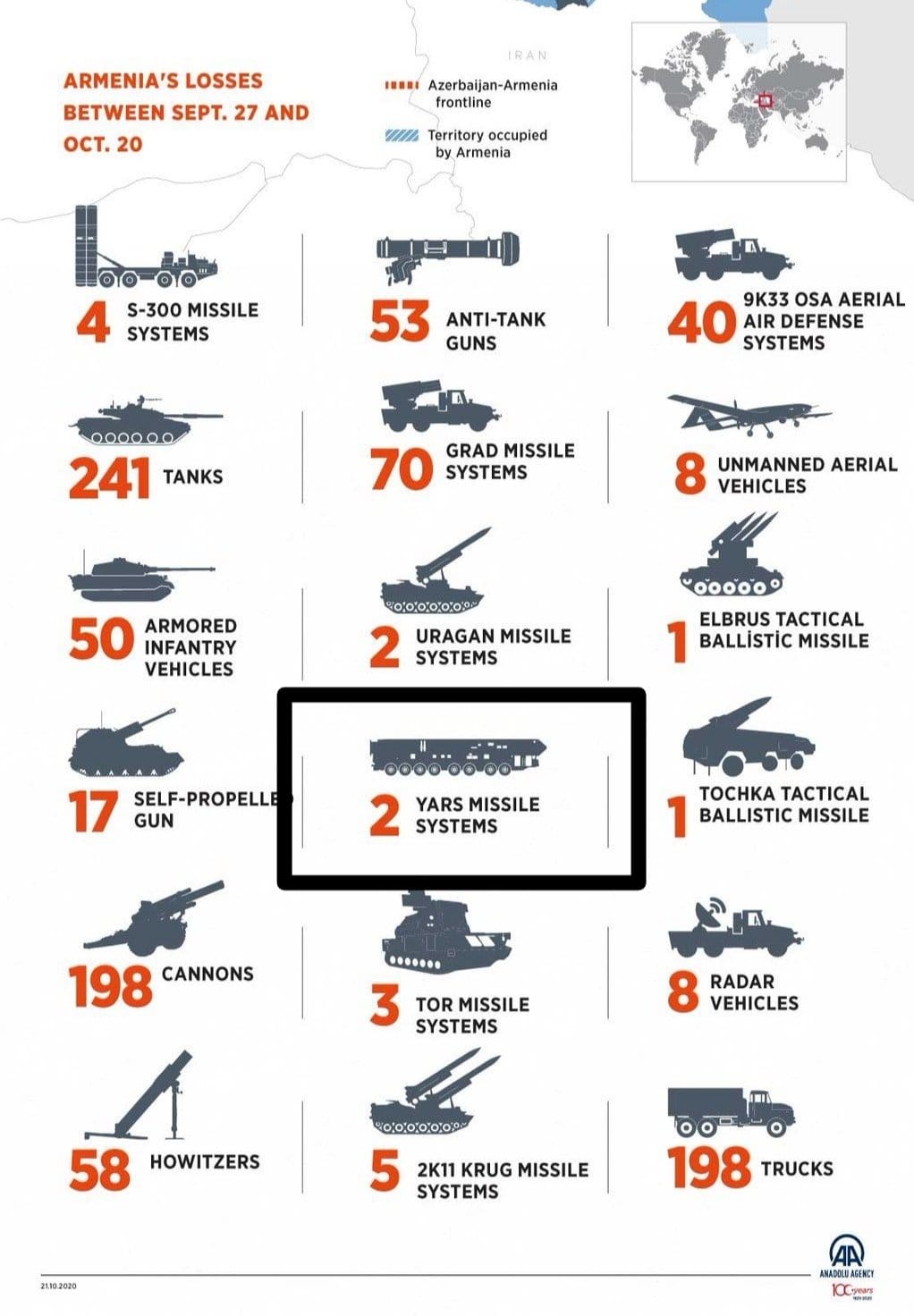
However, propaganda is a dual edge sword: It only works if you win! The popular anger in Yerevan shown after Pashinyan announced the end of the conflict in Nagorno-Karabakh alongside an Armenian military defeat and major territorial concessions mainly stems from the surprise felt by the Armenian people upon hearing those news: For days, they had been fed daily official updates of decimated Azeri units, tactical Armenian withdrawals and upcoming counter-attacks… And out of the blue: A defeat. Surrender.
Truth was probably the main victim of this conflict. Turkish, Azeri and Armenian media and leadership exploited not only their own people’s gullibility and patriotism but also the trust of people abroad following this conflict.
